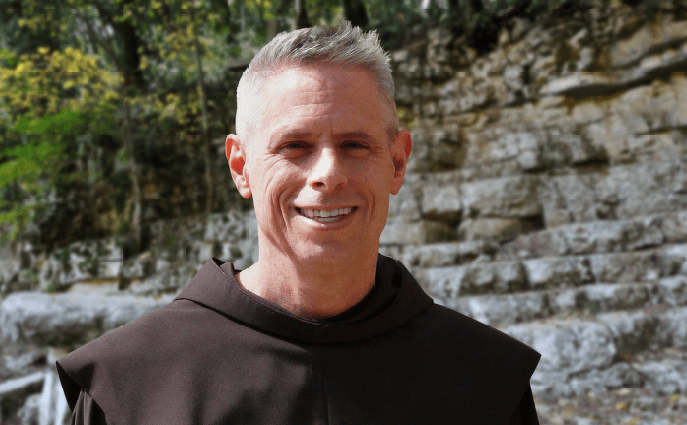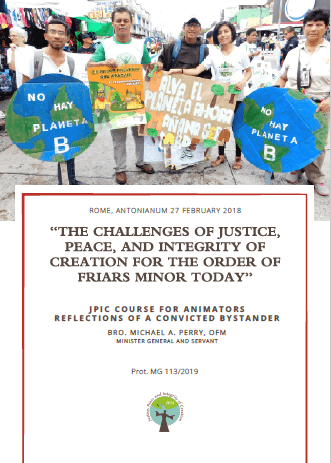My dear brothers (and sisters),
May the Lord give you peace!
It is a great joy and honor for me to share with you today some thoughts on the challenges that friars of the Order, indeed, all Christians, face as we struggle to come to terms with the conditions of what it means to be disciples of Jesus Christ, members of the Church, of the human community, and bearers of the joy of the Gospel (Final Document, OFM General Chapter, 2015). As the 1971 Final Document of the Special Synod of Bishops entitled Justice in the World cited above makes eminently clear, discipleship in the community of Jesus and the Church necessarily implies that we embrace an integral understanding of the faith. In 1971, the Bishops proclaimed that justice is an intrinsic dimension of the faith, of evangelization. While some in the Church have made efforts to weaken this radical declaration, a growing number of Christians, of Friars, and other members of the Franciscan movement are opening their minds and hearts to a much broader, more integral vision of the intersection – better yet, the inseparability – of faith and human development, solidarity, and justice applied to both the social and the natural realities.
Recent efforts by some members of the Church’s hierarchy and faithful have sought to drive a wedge between Caritas and Justitia but these efforts have met with little satisfying success. Still, far too many Christians, including Friars and other religious, fail to recognize the Biblical and ecclesial calling to embrace a wider vision of God’s dream for humanity, and of the responsibilities for promoting a world defined by the practice of justice, mercy, truth, peace, solidarity, and care for the natural world, a vision promoted by Pope Francis in the encyclical entitled Laudato si’. 3.I hope that what I now share with you will encourage you to look beyond the daunting challenges of trying to convince Christian believers who struggle to understand and embrace the spiritual unity that exists between Credo – I believe – and Praxis – therefore I love.
When applied to the concept of a Franciscan vision of the intrinsic nature of JPIC at work in the construction of our identity, the DNA of Franciscan identity serves as an instrument for giving shape and expression to each and every thought, each and every action conducted by Franciscans everywhere in the world. When Francis of Assisi met up with those who were socially excluded, marginalized, those who were poor, the lepers, he recognized that God was present in these brothers and sisters. Conversely, when he took time apart to pray and reflect on his relationship with God, he felt also the presence of all of humanity and of creation present, especially the suffering of humanity and creation. It is for this reason that Franciscans living and working in Indonesia, South Sudan, Italy, Canada, Peru, Poland, Brazil or in any other part of the world should all be seeking to give public expression to the truth of their identity as Friars Minor and as members of the Franciscan movement/family.
Let us turn our attention to some very specific, practical challenges that confront the Order of Friars Minor in attempting to understand and integrate the transverse values of JPIC into daily spiritual, fraternal, and missionary/pastoral life. The following are not meant to be exhaustive but rather illustrative…


